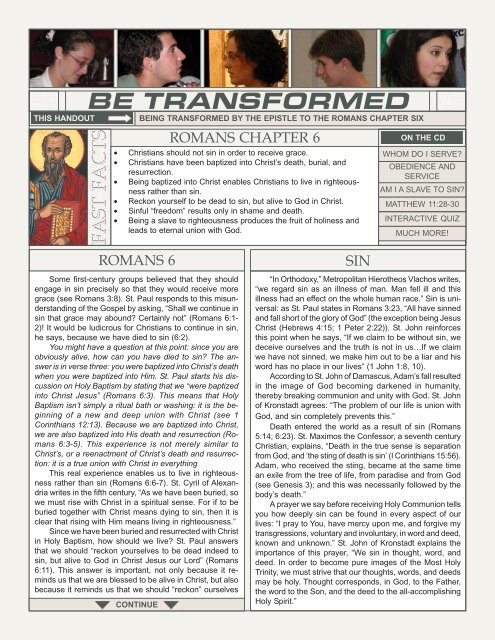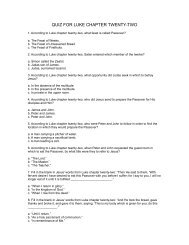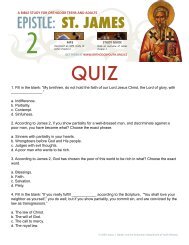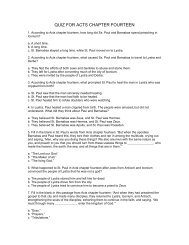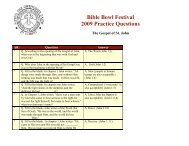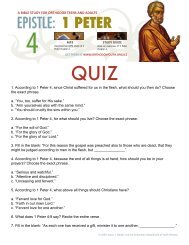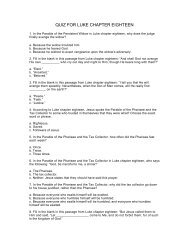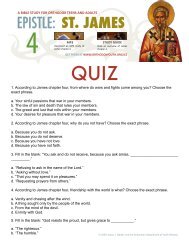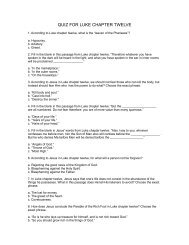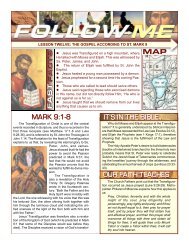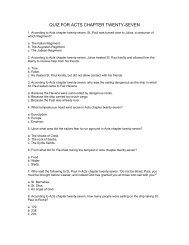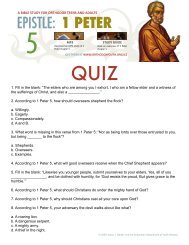to download - Orthodox Christian Bible Studies
to download - Orthodox Christian Bible Studies
to download - Orthodox Christian Bible Studies
Create successful ePaper yourself
Turn your PDF publications into a flip-book with our unique Google optimized e-Paper software.
123456789012<br />
123456789012<br />
123456789012<br />
123456789012<br />
123456789012<br />
123456789012<br />
123456789<br />
123456789<br />
123456789<br />
123456789<br />
123456789<br />
123456789<br />
123456789<br />
123456789<br />
123456789<br />
123456789<br />
123456789<br />
123456789<br />
123456789<br />
123456789<br />
123456789<br />
123456789<br />
123456789<br />
123456789<br />
123456789<br />
123456789<br />
123456789<br />
123456789<br />
123456789<br />
123456789<br />
123456789<br />
123456789<br />
123456789<br />
123456789<br />
123456789<br />
123456789<br />
123456789<br />
123456789<br />
123456789<br />
123456789<br />
123456789<br />
123456789<br />
123456789<br />
123456789<br />
123456789<br />
123456789<br />
123456789<br />
123456789<br />
123456789012<br />
123456789012<br />
123456789012<br />
123456789012<br />
123456789012<br />
123456789012<br />
123456789012<br />
123456789012<br />
BE TRANSFORMED<br />
THIS HANDOUT<br />
BEING TRANSFORMED BY THE EPISTLE TO THE ROMANS CHAPTER SIX<br />
123456789012<br />
123456789012<br />
123456789012<br />
FAST FACTS<br />
123456789<br />
123456789<br />
ROMANS CHAPTER 6<br />
• <strong>Christian</strong>s should not sin in order <strong>to</strong> receive grace.<br />
• <strong>Christian</strong>s have been baptized in<strong>to</strong> Christ’s death, burial, and<br />
resurrection.<br />
• Being baptized in<strong>to</strong> Christ enables <strong>Christian</strong>s <strong>to</strong> live in righteousness<br />
rather than sin.<br />
• Reckon yourself <strong>to</strong> be dead <strong>to</strong> sin, but alive <strong>to</strong> God in Christ.<br />
• Sinful “freedom” results only in shame and death.<br />
• Being a slave <strong>to</strong> righteousness produces the fruit of holiness and<br />
leads <strong>to</strong> eternal union with God.<br />
ROMANS 6<br />
Some first-century groups believed that they should<br />
engage in sin precisely so that they would receive more<br />
grace (see Romans 3:8). St. Paul responds <strong>to</strong> this misunderstanding<br />
of the Gospel by asking, “Shall we continue in<br />
sin that grace may abound Certainly not” (Romans 6:1-<br />
2)! It would be ludicrous for <strong>Christian</strong>s <strong>to</strong> continue in sin,<br />
he says, because we have died <strong>to</strong> sin (6:2).<br />
You might have a question at this point: since you are<br />
obviously alive, how can you have died <strong>to</strong> sin The answer<br />
is in verse three: you were baptized in<strong>to</strong> Christ’s death<br />
when you were baptized in<strong>to</strong> Him. St. Paul starts his discussion<br />
on Holy Baptism by stating that we “were baptized<br />
in<strong>to</strong> Christ Jesus” (Romans 6:3). This means that Holy<br />
Baptism isn’t simply a ritual bath or washing: it is the beginning<br />
of a new and deep union with Christ (see 1<br />
Corinthians 12:13). Because we are baptized in<strong>to</strong> Christ,<br />
we are also baptized in<strong>to</strong> His death and resurrection (Romans<br />
6:3-5). This experience is not merely similar <strong>to</strong><br />
Christ’s, or a reenactment of Christ’s death and resurrection:<br />
it is a true union with Christ in everything<br />
This real experience enables us <strong>to</strong> live in righteousness<br />
rather than sin (Romans 6:6-7). St. Cyril of Alexandria<br />
writes in the fifth century, “As we have been buried, so<br />
we must rise with Christ in a spiritual sense. For if <strong>to</strong> be<br />
buried <strong>to</strong>gether with Christ means dying <strong>to</strong> sin, then it is<br />
clear that rising with Him means living in righteousness.”<br />
Since we have been buried and resurrected with Christ<br />
in Holy Baptism, how should we live St. Paul answers<br />
that we should “reckon yourselves <strong>to</strong> be dead indeed <strong>to</strong><br />
sin, but alive <strong>to</strong> God in Christ Jesus our Lord” (Romans<br />
6:11). This answer is important, not only because it reminds<br />
us that we are blessed <strong>to</strong> be alive in Christ, but also<br />
because it reminds us that we should “reckon” ourselves<br />
CONTINUE<br />
SIN<br />
ON THE CD<br />
123456789012<br />
WHOM DO I SERVE<br />
OBEDIENCE AND<br />
SERVICE<br />
AM I A SLAVE TO SIN<br />
MATTHEW 11:28-30<br />
INTERACTIVE QUIZ<br />
MUCH MORE!<br />
“In <strong>Orthodox</strong>y,” Metropolitan Hierotheos Vlachos writes,<br />
“we regard sin as an illness of man. Man fell ill and this<br />
illness had an effect on the whole human race.” Sin is universal:<br />
as St. Paul states in Romans 3:23, “All have sinned<br />
and fall short of the glory of God” (the exception being Jesus<br />
Christ (Hebrews 4:15; 1 Peter 2:22)). St. John reinforces<br />
this point when he says, “If we claim <strong>to</strong> be without sin, we<br />
deceive ourselves and the truth is not in us…If we claim<br />
we have not sinned, we make him out <strong>to</strong> be a liar and his<br />
word has no place in our lives” (1 John 1:8, 10).<br />
According <strong>to</strong> St. John of Damascus, Adam’s fall resulted<br />
in the image of God becoming darkened in humanity,<br />
thereby breaking communion and unity with God. St. John<br />
of Kronstadt agrees: “The problem of our life is union with<br />
God, and sin completely prevents this.”<br />
Death entered the world as a result of sin (Romans<br />
5:14; 6:23). St. Maximos the Confessor, a seventh century<br />
<strong>Christian</strong>, explains, “Death in the true sense is separation<br />
from God, and ‘the sting of death is sin’ (I Corinthians 15:56).<br />
Adam, who received the sting, became at the same time<br />
an exile from the tree of life, from paradise and from God<br />
(see Genesis 3); and this was necessarily followed by the<br />
body’s death.”<br />
A prayer we say before receiving Holy Communion tells<br />
you how deeply sin can be found in every aspect of our<br />
lives: “I pray <strong>to</strong> You, have mercy upon me, and forgive my<br />
transgressions, voluntary and involuntary, in word and deed,<br />
known and unknown.” St. John of Kronstadt explains the<br />
importance of this prayer, “We sin in thought, word, and<br />
deed. In order <strong>to</strong> become pure images of the Most Holy<br />
Trinity, we must strive that our thoughts, words, and deeds<br />
may be holy. Thought corresponds, in God, <strong>to</strong> the Father,<br />
the word <strong>to</strong> the Son, and the deed <strong>to</strong> the all-accomplishing<br />
Holy Spirit.”
<strong>to</strong> be dead <strong>to</strong> sin, meaning that sin is still alive within us.<br />
After repeating that God’s grace is not an excuse for<br />
sin (Romans 6:15), St. Paul asks, “Do you not know that <strong>to</strong><br />
whom you present yourselves slaves <strong>to</strong> obey, you are that<br />
one’s slaves whom you obey, whether of sin leading <strong>to</strong><br />
death, or of obedience leading <strong>to</strong> righteousness” It is impossible<br />
<strong>to</strong> serve two masters (as Jesus points out when<br />
discussing God and money in Matthew 6:24 and Luke<br />
16:13) - each person will ultimately choose <strong>to</strong> be a slave <strong>to</strong><br />
sin, or <strong>to</strong> God.<br />
St. Paul uses the analogy of slavery <strong>to</strong> reinforce the<br />
seriousness of our situation: before we accepted and<br />
obeyed the Gospel we were completely enslaved by our<br />
sinful desires and activities (Romans 6:17); as Christ states,<br />
“Everyone who sins is a slave <strong>to</strong> sin” (John 8:34). Now<br />
that Christ has freed us from this slavery, however, we must<br />
now be slaves of righteousness (6:18). St. Paul explains,<br />
“You are not your own; you were bought at a price” (1<br />
Corinthians 6:19-20). In his first epistle the Holy Apostle<br />
Peter emphasizes this point: “As obedient children, do not<br />
conform <strong>to</strong> the evil desires you had when you lived in ignorance.<br />
But just as he who called you is holy, so be holy in<br />
all you do; for it is written: ‘Be holy, because I am holy’”<br />
(1:14-16).<br />
Pay attention <strong>to</strong> St. Paul’s statement, “You obeyed from<br />
the heart that form of doctrine <strong>to</strong> which you were delivered”<br />
(Romans 6:17). This doctrine is the teaching of the<br />
Church; Fr. Lawrence Farley explains that at the time this<br />
was a basic creedal statement, followed by a moral commentary<br />
explaining how <strong>to</strong> live according <strong>to</strong> the creed.<br />
Some people reject the idea of serving God - they want<br />
complete freedom without any Higher Authority dictating<br />
how they should behave. St. Paul, however, asks why anyone<br />
would want this type of so-called freedom. Sinful “freedom”<br />
results only in thoughts and behavior of which we<br />
are ashamed, and inevitably results ultimately in death<br />
(Romans 6:21, 23). By being a slave <strong>to</strong> God and righteousness,<br />
in contrast, <strong>Christian</strong>s have the fruit of holiness and<br />
the promise of everlasting life in union with God (6:22-23).<br />
LABOR FOR GOD<br />
St. John of Kronstadt teaches about those who labor for<br />
God:<br />
BAPTISM<br />
Christ proclaims the necessity of Holy Baptism when<br />
He tells St. Nicodemus, “I tell you the truth, no one can<br />
enter the kingdom of God unless he is born of water and<br />
the Spirit” (John 3:5). Holy Baptism was not merely a mystery<br />
which St. Nicodemus was commanded <strong>to</strong> receive. Christ<br />
<strong>to</strong>ld His Disciples, “All authority in heaven and on earth has<br />
been given <strong>to</strong> me. Therefore go and make disciples of all<br />
nations, baptizing them in the name of the Father and of<br />
the Son and of the Holy Spirit, and teaching them <strong>to</strong> obey<br />
everything I have commanded you. And surely I am with<br />
you always, <strong>to</strong> the very end of the age” (Matthew 28:18-<br />
20).<br />
The <strong>Bible</strong> makes it clear that two things are essential in<br />
Holy Baptism: belief in Christ (Mark 16:16) and repentance<br />
for one’s previous sinful life (Acts 2:38). It is for this reason<br />
that the person being baptized - or his or her sponsors or<br />
godparents - renounces Satan and recites the Nicene Creed.<br />
St. Basil the Great tells us about the importance of faith in<br />
baptism:<br />
Faith and baptism are two kindred and inseparable ways<br />
of salvation: faith is perfected through baptism, baptism is<br />
established through faith, and both are completed by the<br />
same names. For as we believe in the Father and the Son<br />
and the Holy Ghost, so are we also baptized in the name of<br />
the Father and of the Son and of the Holy Ghost; first comes<br />
the confession, introducing us <strong>to</strong> salvation, and baptism<br />
follows, setting the seal upon our assent.<br />
The spiritual consequences of baptism - if the <strong>Christian</strong><br />
has a true desire <strong>to</strong> die with Christ in the waters of<br />
baptism - include the cleansing of humanity from sin, vic<strong>to</strong>ry<br />
over death, and the disappearance of the old nature<br />
inherited from Adam. As St. Gregory of Nyssa, a fourth century<br />
<strong>Christian</strong>, teaches, “Baptism is therefore the cleansing<br />
of sins, the forgiveness of transgressions, the cause of renewal<br />
and rebirth.<br />
Baptism also initiates us in<strong>to</strong> two things. First, as St.<br />
Paul teaches in Romans 6:3, we are baptized in<strong>to</strong> Christ.<br />
St. Cyril of Jerusalem explains, “Having been baptized in<strong>to</strong><br />
Christ, and having put on Christ, you have been conformed<br />
<strong>to</strong> the Son of God, for God predestined us <strong>to</strong> be adopted<br />
sons and made us <strong>to</strong> share the likeness of Christ’s glorious<br />
body (Ephesians 1:5).” Second, our baptism initiates us in<strong>to</strong><br />
the Church (see Ephesians 2:19). St. Tikhon of Zadonsk,<br />
comments on this passage, “Holy Baptism is like a door by<br />
which those that are baptized enter in<strong>to</strong> the holy Church<br />
and become fellow citizens with the saints, and of the household<br />
of God.”<br />
The Lord does not forsake those who labour for Him, and<br />
who stand before Him; for with what measure they mete,<br />
He will measure <strong>to</strong> them in return, and He will reward them<br />
for the abundance of the sincere words of their prayer by<br />
sending in<strong>to</strong> their souls a corresponding abundance of spiritual<br />
light, warmth, peace, and joy.


